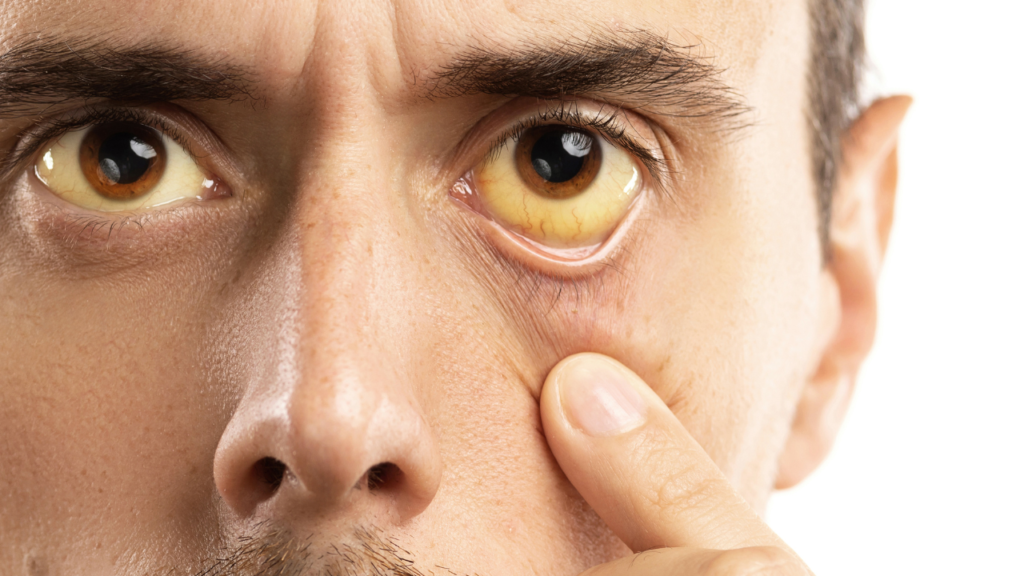Sleeping with acid reflux can be very difficult. You might wake up in the night choking on acid and coughing. It can feel like you’ll never get a good night’s sleep. However, some research suggests that your sleeping position can affect nighttime reflux.
So, what is the best sleep position for people with acid reflux? Studies show that sleeping on your left side helps reduce reflux. On the other hand, sleeping on your right side is linked to more acid coming up into the esophagus and a higher chance of the lower esophageal sphincter relaxing.
In this article, we will discuss the link between acid reflux and sleep and offer tips for keeping your upper body elevated while you sleep.
Can Sleeping Positions Affect Acid Reflux?
People who suffer from acid reflux often find it hard to sleep well. This can be due to eating high-fat foods, exercising late at night, and feeling stressed. Your sleeping position also affects acid reflux symptoms. Have you noticed that some nights, you sleep better than others? This is because certain sleep positions can make acid reflux worse.
Lying Down VS Sitting Up
When a person with acid reflux lies down, stomach contents can move back up into the esophagus. This can cause acid reflux symptoms.
In contrast, gravity helps keep stomach acids and digested food away from the esophagus when sitting or standing.
If you’re unsure what to do, keep your head elevated to help your body keep stomach contents where they should be.
Related: Top 5 Vitamins To Stop Acid Reflux Permanently
Common Complaints From Acid Reflux Patients
Reflux symptoms can make it hard to sleep well. Each person experiences these symptoms differently. If you have acid reflux at night, getting a good night’s sleep can be tough.
Here are some common complaints about sleeping with acid reflux:
1. Heartburn is worse when lying on the left side
Sleeping on your side can impact heartburn. Many studies show that lying on your right side often makes heartburn worse. This might happen because it keeps acid in the esophagus longer and relaxes the lower esophageal sphincter, which helps stop reflux. Most doctors suggest sleeping on your left side to relieve heartburn. However, if lying on your left side makes it worse, try different positions. If heartburn continues, consider changing your diet and lifestyle for long-term relief.
2. Waking up with heartburn in the middle of the night
Falling asleep can be challenging for reflux patients, with 75% reporting nighttime heartburn at least once a week. Symptoms often include waking up choking or coughing, along with a burning sensation and sharp chest pain, which can be confused with a heart attack.
Researchers have identified possible indicators of nighttime heartburn, such as high BMI, consumption of carbonated drinks, daytime sleepiness, use of benzodiazepines, hypertension, asthma, and snoring. Nighttime reflux patients typically require more intensive treatment due to the prolonged duration of acid exposure in the esophagus, which can lead to complications like esophagitis and respiratory issues.
If your reflux is worse at night, inform your doctor. An upper endoscopy may be suggested to check for sleep apnea or gastroesophageal reflux disease (GERD).
3. Stomach acid coming out of the nose while sleeping
When lying down, stomach acids can rise back into the esophagus and reach the sinuses, leading to sinus infections, respiratory issues, and unpleasant breath.
Some individuals also experience the sensation of stomach contents in their nose or mouth during sleep. This symptom is seen in more severe cases of GERD and needs prompt medical attention. If ignored, it could introduce acid and bacteria from the regurgitated matter into the sinuses, resulting in sinusitis.
Taking antacids before going to bed is a typical solution for those suffering from GERD. If you do not experience relief after using the medication, your doctor may prescribe PPIs (proton pump inhibitors) to lower the acid production in your stomach.
The presence of stomach acids coming from the nose is a serious symptom that necessitates more extensive measures for relief. You may be advised to lose weight and modify your eating habits for long-term improvement.
Does Lying On the Stomach Help Reflux?
Sleeping can be challenging for acid reflux sufferers, as lying down allows stomach contents to reach the esophagus more easily. Patients often feel anxious about choking during sleep, leading to sleep deprivation.
Lying flat, whether on your stomach or back, exacerbates reflux symptoms because the stomach and esophagus are aligned. Additionally, lying on your stomach puts pressure on the stomach, increasing the risk of heartburn.
If you prefer to lie on your stomach, elevate your head with a pillow so it is higher than your stomach to minimize reflux.
What Side Do You Lie On For Acid Reflux?
Research indicates that sleeping on the left side is the best position for those suffering from acid reflux. Unlike sleeping on the right side, which can increase lower esophageal sphincter relaxations and acid exposure, sleeping on the left enhances sphincter pressure and raises esophageal pH, helping neutralize stomach acid. A study showed that individuals in the left elevated position experienced less acid exposure and more sleep. Ultimately, finding the best position for your body is important, as experiences may vary.
Why Does Acid Reflux Get Better When Lying Down?
Even though many people have acid reflux, not everyone has the same symptoms. Usually, people find that lying down makes their reflux worse, but for some, it can actually help.
If you feel better after lying down, your reflux might be triggered by things like:
- Physical activity that stresses your body, and lying down helps you relax.
- Emotional stress that calms down when you lie down.
- Being in an elevated position can help keep stomach contents from coming back up into the esophagus.
In these cases, lying down can ease your acid reflux symptoms instead of worsening them. Understanding your triggers is the first step to managing GERD.
Related: Acid Reflux (Heartburn): Causes | Risk factors | Symptoms | Lifestyle changes
Choking on acid reflux while sleeping: What Causes It
If you are experiencing chronic reflux, you may wake up with coughing, vomiting, or discomfort in your throat.
When your stomach releases its contents, the acid can remain in your throat and irritate the area outside the esophagus, leading to coughing. It’s also possible for acid to backtrack and reach your mouth, resulting in choking.
Individuals who experience choking often describe the following symptoms:
- Awakening during the night with a dry cough (a cough without mucus)
- Waking up feeling nauseous and having a strong urge to vomit
- A strong acid taste and odor upon waking
- A sharp pain near the back of the throat
- Experiencing difficulty breathing in the first few minutes after waking up
Can you die from choking on acid reflux?
Sleep interruptions can be very upsetting for patients with acid reflux. While this can be inconvenient, there’s usually no need to worry about aspiration. Aspiration happens mainly due to inflammation or infection.
Regurgitation by itself is not likely to lead to aspiration. It’s more common for aspiration to occur when a person has a full stomach and then vomits. When patients have a reflux episode, their bodies respond by waking up and coughing. Aspiration is rare in reflux patients because their bodies react to the acid in the esophagus by waking them up.
Aspiration is more common in people who are not fully conscious, such as when sedated or drunk.
Heartburn Relief at Home: Tips for Better Sleep
1. Take Antacids
To counteract stomach acids, consume an antacid one hour before bedtime. It’s important to note that not all antacids are safe for pregnant women; avoid antacids containing magnesium during pregnancy. Tums, Maalox, and Rolaids are excellent choices for all patients.
If over-the-counter antacids do not alleviate nighttime reflux, consult your physician about prescription options. Medications like proton pump inhibitors can completely inhibit acid production and facilitate the healing of your esophagus.
2. Eat Your Last Meal Earlier
Having meals too late in the evening is a significant cause of nighttime acid reflux. Some eat as early as 3 p.m. to avoid experiencing nighttime acid reflux. If you must have snacks at night, wait 1 to 2 hours before lying down to give your food time to move through your digestive system. Going for a 30-minute walk also enhances your likelihood of enjoying a restful night’s sleep.
3. Sleep with Extra Pillows
Resting in an inclined position on your left side is the most beneficial position for those who experience acid reflux. Consider adding a few pillows when you go to bed to enhance your comfort.
4. Wear Loose Clothing
Wearing tight pajamas can pressure your stomach and worsen your acid reflux. Instead, wear loose and comfortable clothes before bed.
5. Drink Ginger Tea
Ginger is widely recognized as a natural inflammation treatment and is effective for easing heartburn. Boiling ginger in tea can alleviate nausea, which may improve sleep quality. However, avoiding ginger ale is best, as its carbonation can increase acidity.
Link Sources
https://www.ncbi.nlm.nih.gov/pubmed/11051341?dopt=Abstract
https://www.ncbi.nlm.nih.gov/pmc/articles/PMC3099296/
https://www.ncbi.nlm.nih.gov/pubmed/15888night’sps://www.ncbi.nlm.nih.gov/pubmed/26053170





